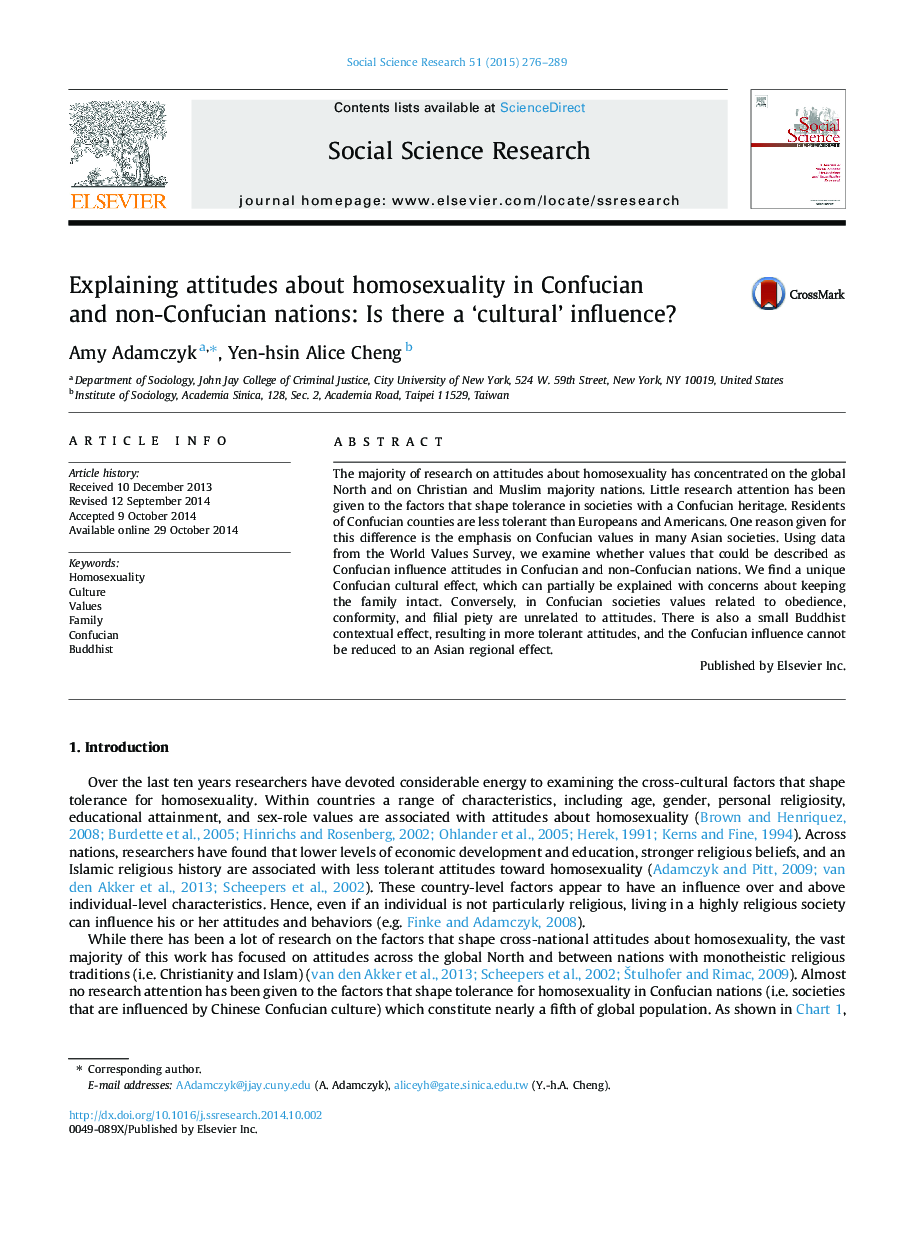| کد مقاله | کد نشریه | سال انتشار | مقاله انگلیسی | نسخه تمام متن |
|---|---|---|---|---|
| 955750 | 1476124 | 2015 | 14 صفحه PDF | دانلود رایگان |
• Residents of Confucian nations are less tolerant than Europeans and Americans.
• The Confucian cultural influence cannot be reduced to an Asian regional effect.
• They are less tolerant, in part, because of concerns about keeping the family intact.
• In Confucian societies values related to obedience, conformity, and filial piety are unrelated.
• The proportion Buddhist is associated with a small increase in tolerance.
The majority of research on attitudes about homosexuality has concentrated on the global North and on Christian and Muslim majority nations. Little research attention has been given to the factors that shape tolerance in societies with a Confucian heritage. Residents of Confucian counties are less tolerant than Europeans and Americans. One reason given for this difference is the emphasis on Confucian values in many Asian societies. Using data from the World Values Survey, we examine whether values that could be described as Confucian influence attitudes in Confucian and non-Confucian nations. We find a unique Confucian cultural effect, which can partially be explained with concerns about keeping the family intact. Conversely, in Confucian societies values related to obedience, conformity, and filial piety are unrelated to attitudes. There is also a small Buddhist contextual effect, resulting in more tolerant attitudes, and the Confucian influence cannot be reduced to an Asian regional effect.
Journal: Social Science Research - Volume 51, May 2015, Pages 276–289
